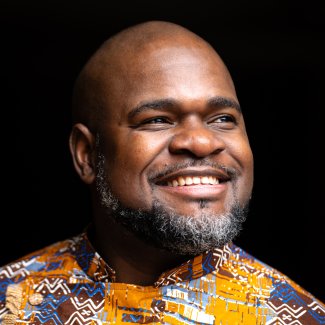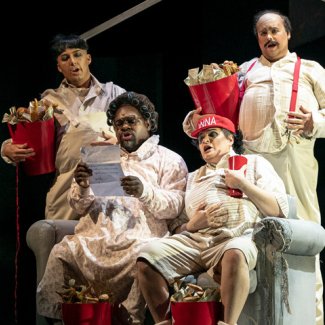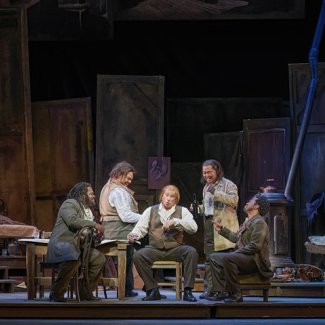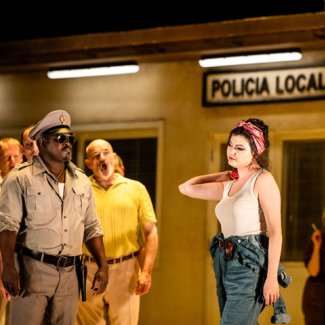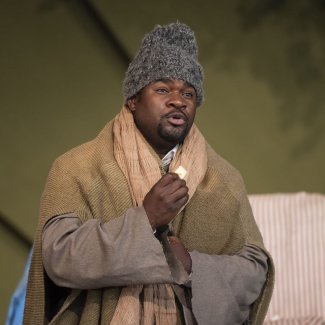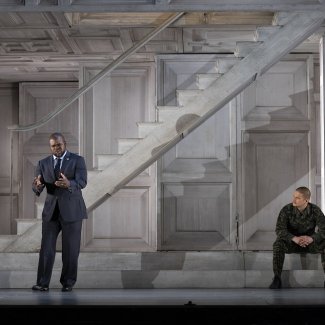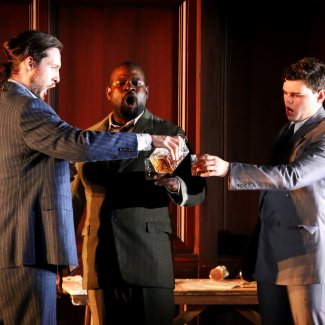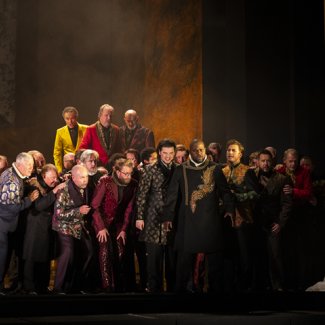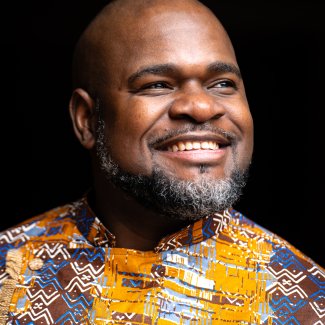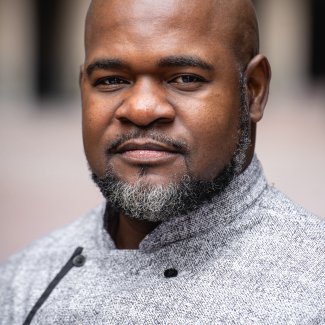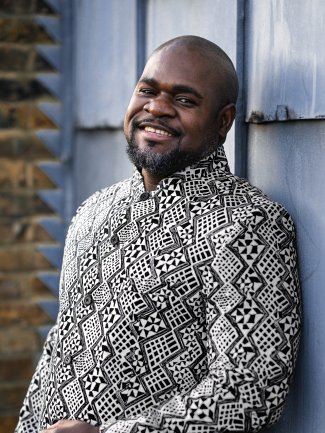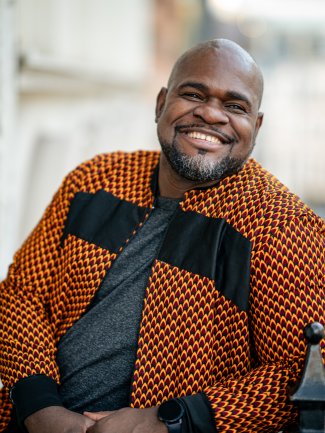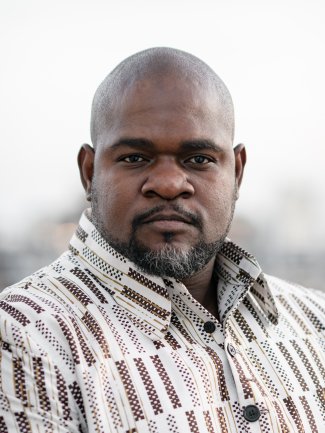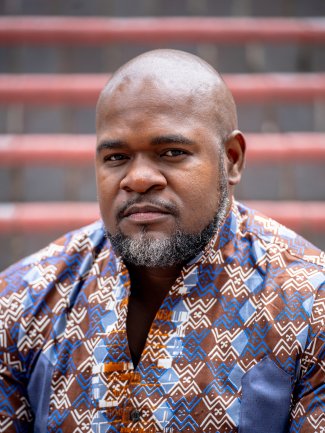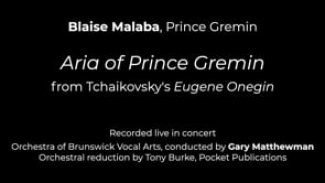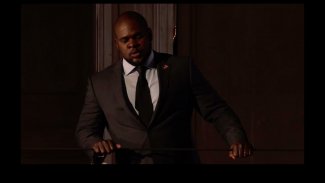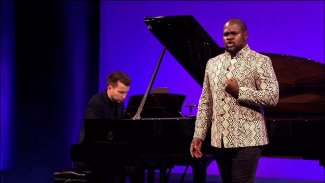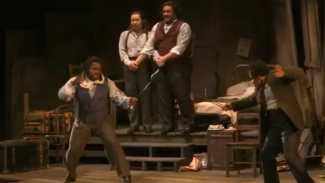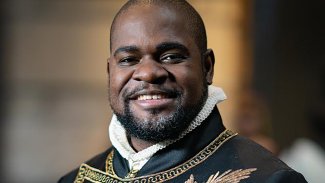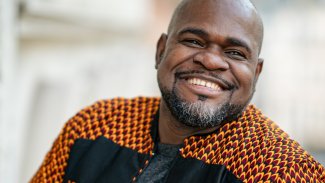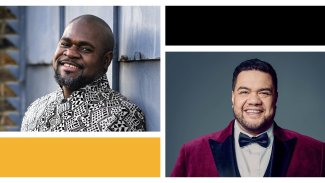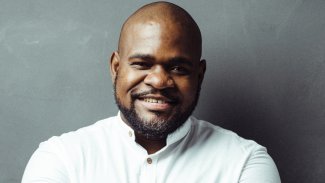Born in the Democratic Republic of the Congo, bass Blaise Malaba studied in Ukraine before training at the Royal Welsh College of Music and Drama and thereafter as a member of the Jette Parker Artists Programme at the Royal Opera House, Covent Garden. An emerging Verdi bass with a resonant voice and imposing stature, his debuts on the mainstage have included King of Egypt (Aida) under Sir Mark Elder, Montano (Otello) under Daniele Rustioni, High Priest (Nabucco) under Daniel Oren, and Count Ceprano (Rigoletto) under Stefano Montanari. Upcoming Malaba makes his company debut for Opéra du Capitole Toulouse as High Priest in Stefano Poda’s new production of Nabucco under Giacomo Sagripanti, sings Philippe II in Don Carlos for Opéra de Baugé, and returns to the Royal Opera House as Ferrando in Adele Thomas’ production of Il trovatore.
Recent highlights at Covent Garden have included Malaba’s critically acclaimed debut as Zuniga in Damiano Michieletto’s new production of Carmen under Antonello Manacorda, Abimélech in Richard Jones’ new production of Samson et Dalila under Sir Antonio Pappano, and both Ceprano (Rigoletto) and Mandarin (Turandot) in London and on tour to Japan. His robust bass and strong stage presence have also brought forth company debuts for Canadian Opera Company as Colline in La bohème under Jordan de Souza, Opéra national de Montpellier as Sprecher in Anna Bernreitner’s new production of Die Zauberflöte conducted by Constantin Trinks, and Teatro Colón in Kurt Weill’s The Seven Deadly Sins.
Named as a Rising Star in the October 2020 edition of BBC Music Magazine, Malaba’s repertoire incorporates such roles as Samuel (Un ballo in maschera), Alidoro (La Cenerentola), Sarastro (Die Zauberflöte), Don Basilio (Il barbiere di Siviglia), Publio (La clemenza di Tito), Sparafucile and Monterone (Rigoletto), Banco (Macbeth), Prince Gremin (Eugene Onegin), Somnus (Semele), and Il Re (Ariodante). Equally active on the concert platform, Malaba expands his repertoire this season with Verdi’s Messa da Requiem with Oxford Philharmonic Orchestra under Marios Papadopoulos and Handel’s Israel in Ägypten with Kraków Philharmonic Orchestra under Łukasz Borowicz.
